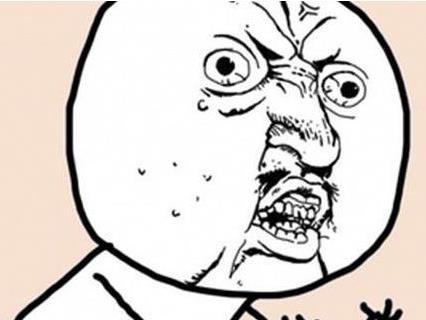Rage – Chinese style.
The Cannes Film Festival has kept Netflix in the naughty corner because it won’t allow a distributor to run Netflix Originals in a cinema system which requires a three year holdback. Behind that is the aesthetic argument that Netflix films are not really films, although the great majority of the world’s movies have no more right to claim the mantle of cinematic art.
There is also the perception that Netflix steals films from the exhibition circuits, because they pay premium amounts for exclusivity, which removes titles from cinema exhibition.
Amazon titles are still in contention at Cannes, because they are accepting the French exhibition terms. However Netflix is like the crass uncle who won’t leave the party, because it stayed in town and bought prizewinners Happy as Lazzaro and Girl, but only for North and Latin America, so the rest of us can maybe see them on the big screen.Reports suggest it had 26 representatives at the festival.
Netflix also bought the animation Next Gen, for which it acquired world wide rights, so it will disappear from the cinema circuit. Well, world wide doesn’t include China for which Alibaba and Wanda reportedly hold the rights. Netflix is not allowed to run in China and has a sub-licensing deal with Alibaba, which may be the origins of this deal.
The picture is co-directed by Kevin R. Adams and Joe Ksander from Wang Nima’s comic 7723. It is produced by Baozou Manhua in association with Canadian company Tangent Animation.
Baozou is not the faceless financier I first imagined. The company started with the evolution of the rage comic in the US, which is based on simple, crudely drawn and repeated faces, often made in Microsoft Paint. Cartoonist Wang Nima was drawing them in China, and built a website to organise his output, now called Baozou which means ‘rage’ or ‘out of control’ in Mandarin. It became a domestic phenomenon, unique in style, which spread into an online humorous news show, standup, apps, emoticons and parodies. Using his tools, loyal followers send a tide of them foaming across the internet. China Org claims he was the number ten internet celebrity in 2016 and beloved by younger people. This is what he looks like when he is performing.

In 2014, Baozou posted a video of someone wearing a rage face of military hero Dong Curui along with some bad puns about advertising. This kind of thing does not tickle the government on its collective funnybone, and the increasingly stern government of President Xi Jinping passed the Heroes and Martyrs Protection Law which came into effect on May 1 2018.
Baozou responded by reposting the video on a content aggregator.
On May 11, the Netflix deal was announced. Now Baozou is going to need its share of that US$30m because the Chinese government has just shut it down. Sixteen sites have been purged off Weibo for insulting revolutionary heroes, with the announcement that
‘In accordance with the Law on the Protection of Heroes and Martyrs (英雄烈士保护法), the Cybersecurity Law (网络安全法), and other legal guidelines, Weibo has fulfilled its corporate responsibility (..) and has focused on disposing of harmful information that insults, slanders, or in any other way infringes on the name, portrayal or reputation of heroes.’
What does this mean for the release of the film this Northern summer in China, where it can be expected to do pretty well? It could be one of the more unpleasant ways for a film to fail at the box office.
However, China censors cinema productions differently from online, which tends to be more liberated. It makes sense that Alibaba expects Next Gen to fail that test anyway, even without its ratbag connection with a company called Rage. But if it is relying on the online market, the Baozou label may prove fatal. This is a fidgety situation for all concerned.
According to Sixtone News,
Baozuo Manhua CEO Ren Jian issued a public apology on Thursday. “The company will start internal rectification from today,” the statement said. “We’ll stop posting new content and organize for all of our staff to learn relevant laws and regulations.”
Sticking with our totalitarian theme, Jafar Pahani’s 3 Faces turned up at Cannes in competition without its director, victim once again of the Iranian government which won’t let him travel. The world cineaste community tends to take the constant battery of Iranian directors personally as the films tend to be wonderful and they come from a very rich culture. Ultimately Pahani shared the script award this year with Alice Rohrwacher who made Happy as Lazzaro.
The always energetic sales company Celluloid Dreams sold 3 Faces to 20 or so territories before the festival opened, so Madman has the rights for Australia and New Zealand. France provides a test of its audience appeal as it opens there in the hands of Memento Distribution at the beginning of June.
According to Peter Bradshaw in The Guardian,
‘Jafar Panahi has here created a quietly engaging quasi-realist parable, part of his ongoing and unique creative cine-autobiography, full of intelligence and humility and a real respect for women and for female actors. It is gentle, elusive, and redolent of this director’s mysterious Iranian zen. His films are always intensely watchable, though this one appears to be reaching back 20 years or so to an earlier kind of classic Iranian cinema, from a time when filmic language needed to be more encoded.’
The film has sold to distributors in both China and Hong Kong. Cue hollow ironic laugh.
The Chinese were a significant presence at Cannes this year. They decorated the red carpet with their usual aplomb, while Ash is Purest White was in competition, Long Day’s Journey into Night and The Pluto Moment ran in the Un Certain Regard section and student film The Storms in Our Blood won a silver Cinefondation award.
The Third China Co-production Day featured a matchmaking session, while 80 films were brought to the market in a government delegation. 6% of the attendees were Chinese buyers, and LA company Rights Movies sold 13 of these pictures to Huala New Media in a deal started at the American Film Market. It wasn’t an impulse purchase and it won’t be a theatrical deal.
But observers claimed the market is sluggish and restaurants easy to book. Indiewire has a paragraph which neatly lays out the general issue.
Festival director ‘Fremaux isn’t responsible for the global film market, which is shrinking swiftly while streamers like Netflix grow, but is pushed up by China and Korea. France is in a bubble with protections that feed producers, exhibitors and television channels. The action in screening rooms for buyers and in meetings at the Grand Hotel was visibly diminished, along with fewer posters on display at the Carlton and along the Croisette.’
Marketwatch quotes Robert Jones, co-CEO of film lender Fyzz Facility:
‘“What we’re seeing in the last five years is the migration away from the more middle ground films,” he said. “It’s either big budget franchise pictures or on the other end, crossover arthouse fare or auteur films, with no place for an elevated genre film.”’
‘“There may be fewer total movies in the market at Cannes these days, but there are a greater number of high-quality movies, and the studios, independent distributors and digital platforms continue to fight to acquire them,” said a CEO of a major finance group who wished to remain anonymous.’
For anything more niche, the price is dropping. Makes you want to draw a mask on a piece of cardboard and go all Baozuo, which in the West is a silly, harmless gesture.
———–
China is a strange, self-contradictory monolith. We should note that The South China Morning Post reported that Wang Bing’s eight hour documentary Dead Souls ‘stuns Cannes Film Festival with documentary revealing horrors of Mao’s gulags’.
Here we see the safety valves in totalitarian societies. Jafar Pahani is still officially under house arrest, prevented from making films in Iran for twenty years, but an entire feature arrives on the festival circuit every year. The Cultural Revolution is a loaded topic in Chinese filmmaking, and yet the testimony of survivors can be recorded by a major documentary artist and shown at Cannes. However, the indy film scene in China is under sustained attack, and the internal festivals which showed these films have been closed down, along with key websites.
This interview clip is increasingly moving…
———
The BBC China blog has an interesting take on censorship.





